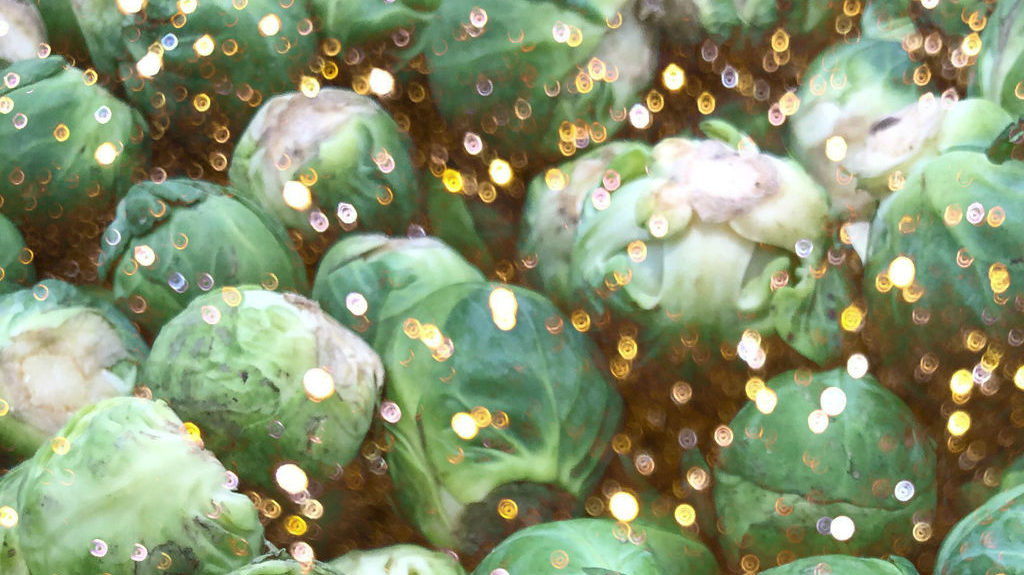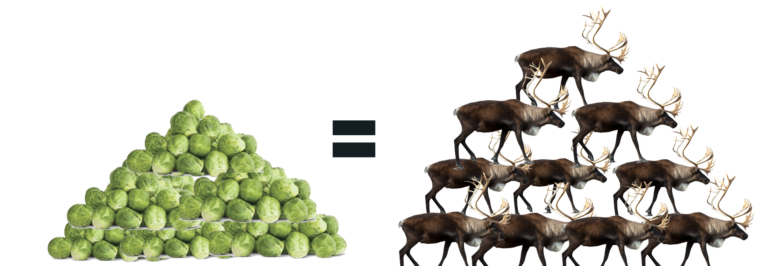Brussels sprouts; a great British love affair

Brussels sprouts are a vegetable that tends to split opinion. Whilst many of us couldn’t imagine a Christmas dinner without them, others are still recovering from the childhood trauma of being forced to eat them.
Whatever your Brussels sprout stance, they have become synonymous with British Christmastime, and this tradition shows no sign of waning.
But where did our sprout obsession come from, and what is the extent of our fixation? Here are some top Brussels sprout facts:
- Brussels sprouts are not native to the UK – they were actually developed from wild cabbage and originate from Afghanistan, Iran and Pakistan. They weren’t introduced to the British Isles until the late nineteenth century.
- The vegetable was named after the capital of Belgium after becoming a popular vegetable back in the sixteenth century.
- In the UK, around 40,000 tonnes of Brussels sprouts are eaten every year, this is almost the weight of the Titanic and is equal to the weight of around 44,000 adult male reindeer.

- Brussel sprouts belong to the Brassica family of vegetables – other members include cabbages, broccoli, kale and kohlrabi.
- As well as being a Christmas staple, sprouts are also considered a superfood. They contain more vitamin C than an orange and half a pound contain just 80 calories. In addition, they have numerous other health benefits including:
Improve digestive health – They contain enzymes that help us to break down our food and are loaded in fibre which help aid the movement of food through the digestive tract.
Great for the ol’ ticker – Sprouts have been proven to actively reduce dangerous cholesterol in the body, which reduces our risk of heart disease and heart attacks by preventing the build-up of fatty blockages.
Rich in nutrients – Sprouts are bursting with nutrients and antioxidants which help to strengthen the immune system, which in turn helps to fight illness and infection.
Superhuman sight – Carrots have been getting all the glory, but sprouts can also improve sight as they are full of Vitamin A which has been found to improve the quality and longevity of our sight.
Anti-inflammatory – Inflammation in the body can cause all kinds of havoc; from headaches to cancer to muscle pain and even allergic reactions like asthma. Sprouts can help prevent these ailments by preventing inflammation from occurring in the body.
Alkalizes – If your body’s PH levels are too acidic, it can cause all manner of health problems. Sprouts can lower these PH levels, creating a more harmonious internal environment.
Great for the mane – Sprouts are also great for hair health as the vitamin A they contain can help to keep hair strong and shiny. The zinc found in sprouts can also help to prevent dandruff.
With all these health benefits, its no wonder that Brits are barmy about Brussels sprouts, but just how big is the Brussel sprout economy?
Sprouting success
Despite being a favourite at the Christmas dinner table, in actual-fact two-thirds of the UK’s sprout consumption happens outside of the festive season. In fact, we eat more sprouts than anyone else in Europe and the industry is estimated to be worth around £650,000.
One of the reasons they are perhaps so popular is because the weather conditions in the UK are optimum for sprout production. They grow best in temperate climates observed in Northern Europe, (between 7-24 degrees) and are ready for harvest 90-180 days after planting.
The bottom line is, Brussels sprouts are all-rounders; they are nutritious and delicious, and the festive season just wouldn’t be the same without them.
To find out how CCS Insurance can help your business arrange tailored Agricultural Insurance, call us on 01483 726777.







